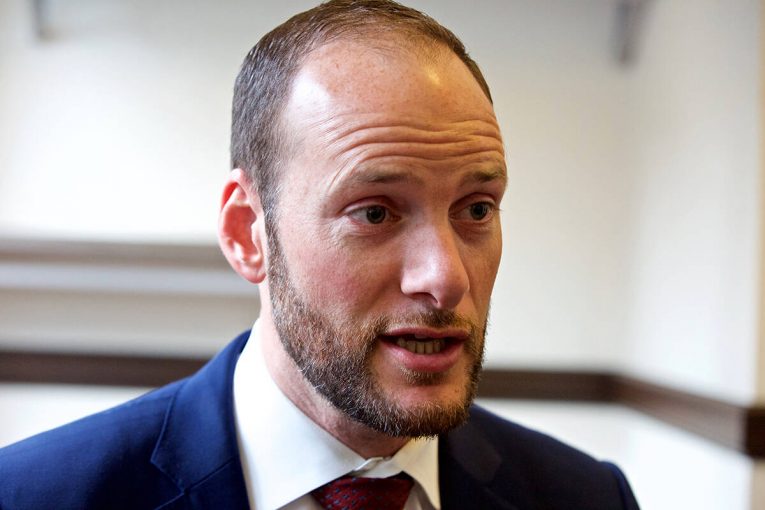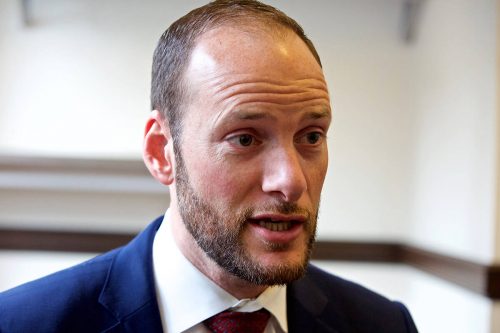

By Alex Jimenez
SAN FRANCISCO, CA- In her Op-Ed in SF Gate, San Francisco Assistant District Attorney Rachel Marshall attacks the “weak on crime” narrative surrounding progressive prosecutors, like her boss District Attorney Chesa Boudin who faces a recall election June 7.
Boudin has been the subject of harsh criticism from conservative and traditional prosecutors and has served as one of the main targets in resisting the progressive movement in the criminal justice system.
His policies include ending an over reliance on incarceration, expanding diversion programs in lieu of prosecuting low level offenses, and advocating for the expansion of housing and mental health-substance treatment programs. Boudin’s stated goal is to ensure long term public safety in reducing crime.
“To achieve long-term safety, progressive prosecutors recognize that the government must invest in housing, education and treatment to prevent the poverty, desperation and illness that often lead to crime,” tweeted Marshall.
Reform prosecutors like Boudin have served as a scapegoat over the growing concerns of crime nationwide and, especially in California, a narrative pushed by conservative politicians and police unions that progressive policies lead to an increase in crime, the Op-Ed states.
Marshall refers to Sacramento District Attorney Ann Marie Schubert’s rhetoric as an example. Schubert has openly attacked reforms to make parole more accessible and advocated for harsher punishments for minor crimes like theft.
“But her anti-reform approach does not promote safety; Sacramento has seen a dramatic increase in crimes, including homicides. Just last month, a mass shooting in Sacramento took six lives and injured 12. Nonetheless, Schubert has falsely blamed progressive prosecutors throughout California for upticks in crime,” writes Marshall.

Indeed, while Schubert does champion herself as tough on crime, reports from their respective police departments for 2020-2021 show San Francisco exhibiting a 17 percent increase in homicides while Sacramento had a 31 percent increase in homicides.
“These types of comments belie the truth: Reform prosecutors’ approaches promote long-term public safety,” said Marshall.
Marshall clarifies that progressive prosecutors, such as her boss, take a different approach to the traditional tough-on-crime policies by focusing on reducing unnecessary incarceration and addressing the root causes of crime—which, despite its criticism, promotes public safety.
And, looking at California, Kern County had the highest per capita homicide rate in 2021, double the rate of San Francisco, where the two share a similar population size.
Yet, the district attorney of that county has criticized progressive policies such as reducing sentencing enhancement, said Marshall.
Fort Worth, Texas, and Memphis, Tennessee, are two jurisdictions known for their tough-on-crime approach and they also have seen major increases in homicide rates—with Fort Worth having the highest increase nationally and Memphis one of the highest murder rates in the county, noted Marshall, adding, “Murder rates have been 40 percent higher in Republican-run states.”
And comparatively, in California, conservative jurisdictions like Riverdale have higher crime rates, and violent crime in general are more prevalent in conservative counties.
“But only progressive prosecutors are made to answer for crime rates; I have yet to learn of a traditional prosecutor attacked for crime increases (take Oakland, where homicide rates have ballooned … crime reports there rarely name, let alone blame, the longstanding DA),” argues Marshall.
In the Op-Ed, Marshall adds that progressive reforms have not negatively impacted crime in their respective communities, based on an examination of 35 jurisdictions where reforms did not increase crime.
Marshall recognizes that the significance of rising homicide rates and crime overall should not be ignored, noting, “None of this is to minimize the significance of rising homicides or the impact of crime. But those committed to failed criminal justice approaches are capitalizing on fear to push for ineffective policies.”
She called for an honest conversation about criminal justice reform and to look for a broader meaning in public safety, including safety for communities of color which experience the brunt of violent crimes.
“We should not revert to failed approaches that will exacerbate the very problems that led us here. Instead, we should encourage prosecutors to focus on the investments needed to keep us all safe,” Marshall argued.
